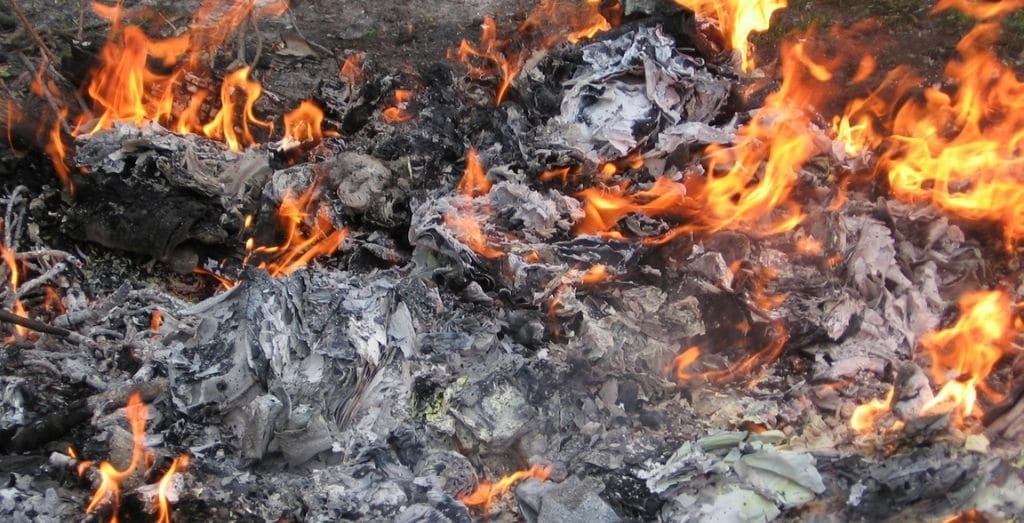Despite being an appealing technological solution for waste disposal, municipal solid waste treatment (MSW) combustion-based processes or incineration is a topic of intense controversy worldwide. Without effective policies, incineration can release toxic contaminants that can impact human health and the environment, especially into the air, land, and water.
While municipal waste incineration and energy recovery can be an important component of an integrated waste management system, strict controls are needed to avoid its adverse effects on human health and the environment. Here are the laws and regulations you should keep in mind if you plan to do incineration or have seen unauthorised incineration activity in your area.
Prohibition Bill of Waste to Energy Incinerators
The aim of the Environmental Planning and Assessment Amendment bill is to ban new innovations in energy incinerators for waste purposes. This bill prohibits new technologies for waste-to-energy incinerators alone but does not apply to waste-to-energy incinerators solely used to treat clinical, specific associated waste projects and other projects excluded from waste-to-energy proposed by the Act or by subsequent regulation.
The bill also ensures that pending applications for development consent or certain planning approvals are to be dealt with in compliance with this proposed bill. This is to provide that projects for which development consent or approval are granted before the commencement, are not prohibited since they are carried out in compliance with the development consent or approval in effect immediately before the start of this proposed bill.
NSW EPA Regarding Air Pollution
In open fires and incinerators, the burning of wood, garbage and vegetation is prohibited as it always causes smoke that is one major cause of air pollution. That is why, in all council areas in the regions of Sydney, Wollongong and Newcastle, and other NSW council areas specified in Schedule 8 of the Clean Air Regulation, backyard burning and unregulated incineration are prohibited at all times.
Smoke emissions can worsen chronic issues with the heart and lungs, such as angina, emphysema and asthma. Also, it can cause:
- Breathing problems and breathing conditions such as bronchitis
- Itchy or burning eyes and sore throats
- Decreased function of the lungs in children
- Headaches, exhaustion or chest pressure
With these potential health threats, New South Wales has only acceptable locations and situations where fires can be lit outdoors to protect the atmosphere and the people’s health nearby. Contact your local council to figure out what and where you can burn in your area and if a permit is needed.
Obligation on Minimising Pollution
To avoid or reduce air pollution, a person who burns something in the open or in an incinerator should always mind what impact would it result would it bring to society if they do. In the guidelines of NSW about the Clean Air Regulation, corporations will have a maximum penalty of 100 penalty units and 50 penalty units for individuals who do meet or violate the guidelines.
That is why you can only burn material that is appropriate for disposal by burning it when it is openly burned or in an incinerator. In addition, if you intend to have incineration, you should also consider the potential impacts on human health and the environment.
No Burn Notices
The EPA aims to protect human health and the environment. That is why they issue a No Burn Notice to corporations or individuals that are included or not in the planned fires that produce indications of smoke contributing to the build-up of air pollution.
For places outside the bushfire danger season, which usually takes place during 1 April to 30 September, the EPA may prohibit fires in the open or in incinerators by issuing a No Burn Notice.
Conclusion
Incineration-based technologies have been the topic of intense environmental, social and political debate. A wide range of pollutants is emitted that is harmful to human health. In order to resolve these fundamental concerns about the potential negative effects of incineration, it’s good always to follow the legislation to avoid causing harm to any person and the environment.
You count on us at Paul’s Rubbish Removal Sydney with your rubbish. Our team aims to reduce Australia’s rubbish by providing our customers with a highly efficient workforce who will remove all your recyclable junk materials and other household rubbish. We have over 20 years of industry experience in providing comprehensive and eco-friendly rubbish removal services across Sydney. Call us on 0407 125 125 or book online to schedule a rubbish removal service.







